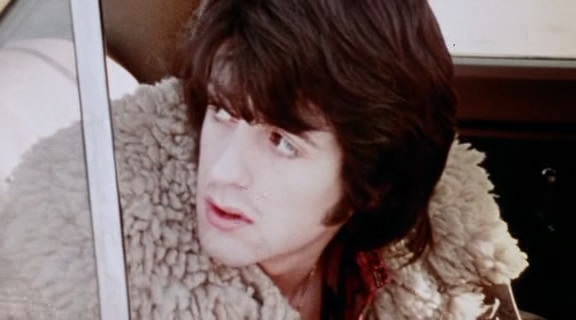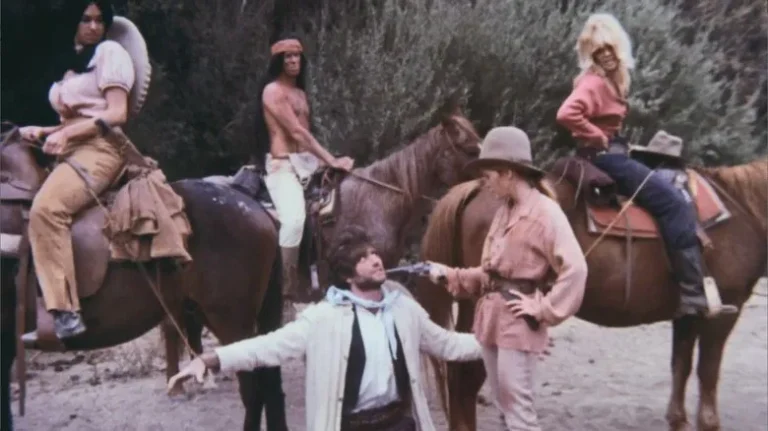-Grindhouse Fest is the special section in Celluloid Dimension where you can discover all the goodies from the golden age of exploitation cinema. Have fun!
Directed by Aldo Lado
Written by Roberto Infascelli, Renato Izzo and Aldo Lado
Starring:
- Flavio Bucci as Blackie
- Macha Méril as The Lady on the Train
- Gianfranco De Grassi as Curly
- Enrico Maria Salerno as Prof. Giulio Stradi
- Marina Berti as Laura Stradi
- Irene Miracle as Margaret Hollenbach
- Laura D’Angelo as Lisa Stradi
Rating: ![]()
The European response to Wes Craven’s The Last House on the Left is more political than a shocker and more mean-spirited than playfully wicked, but its exploitative canvas is still nothing more than a shoddy travesty of Craven’s amazingly vindictive 1972 film. At least Aldo Lado – one of the great names in the Italian exploitation milieu – strives to give more than mere imitative inspiration to this violent pantomime about two young girls (Irene Miracle and Laura D’Angelo) traveling on a Christmas Eve train from Germany to Italy. On the train they meet two crooks (Flavio Bucci and Gianfranco De Grassi), one of them a junkie, but both equally kinky. The helpless girls also have the misfortune of coinciding on the same train with a classy woman (Macha Méril) who happens to be a sexual degenerate. And with this, director Aldo Lado has the necessary foundations to turn the train ride into a veritable hell.
The plot – it is pretty much Craven’s movie but, on a train, – despite its admittedly inauthentic procedures, has a discursive nature that utilizes more the practice of satire than that of genre cinema; consequently, the film never feels exactly like the popular revenge or rape-revenge flicks, but rather leans towards being an exploitative product with sobering misanthropic positions on post-war society in Europe. Aldo Lado with his inhuman visual approach does not render the brutality as a product of shock or perverse entertainment but rather tries to make the gruesome events a pessimistic contemplation of its contemporaneity. However, its strengths are also its greatest weakness; the nasty performances – Macha Méril is strikingly, desperately evil in the female role in response to the merciless thuggery of David Hess in The Last House on the Left – and above all the coldness of the script differ from the political tone that Aldo Lado is aiming for. The film overall leaves you with a feeling of unfulfillment; it is not necessarily anti-climactic, but it is ineffective in eliciting thrills from its political context and the violent histrionics of the events.









